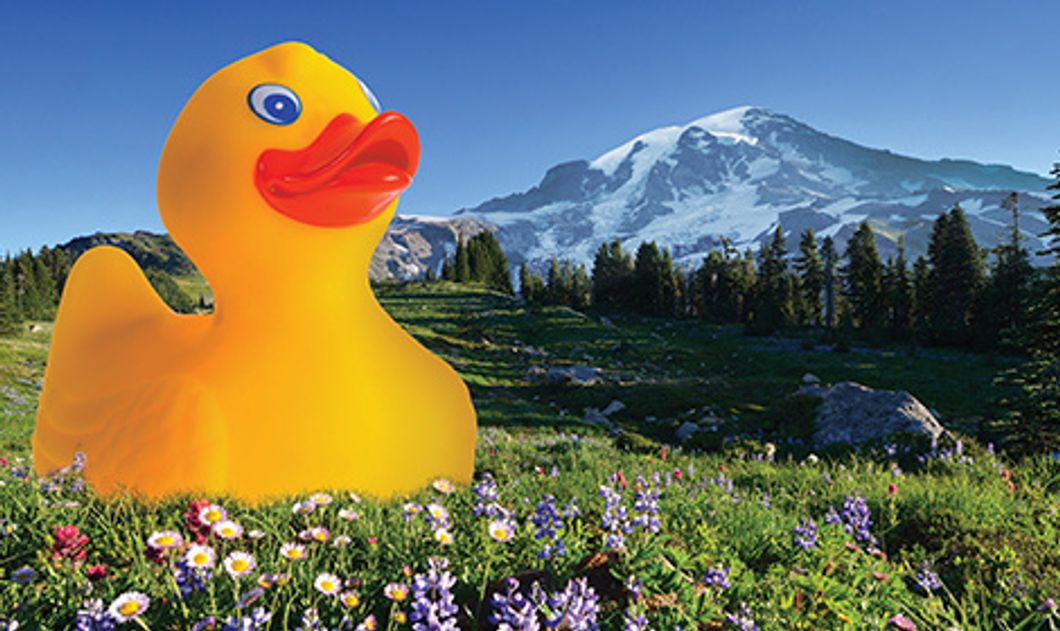Ah, yes. Spring!
That magical time of year when that weird, warm yellow ball in the sky comes back again. We can finally whip out our old, ripped up tee shirts and shorts, and wear them happily in the fifty to sixty degree weather. The crisp, clean air and the smells of blooming flowers and dew makes you feel like you're in a utopian meadow. *Cue the talking and singing woodland critters*
We emerge from our homes like bears out of hibernation, and suddenly every street, park, suburban yard or beach is packed full with people soaking up every second they can. Making small talk about the weather with strangers is actually exciting. As a teenager, it wasn't uncommon for my peers to skip a class or two — or even the entire school day just to be outside with their friends. When the sun is out, everyday feels like a holiday.
It's a big deal for us. Seattle ranks #2 for the city that has the "most depressing winter" in the United States, only getting 28 percent of clear skies between November and February. Since we're located in the PNW, the sun will rise later and set earlier, and the little daylight we do get is usually covered by a thick, dark blanket of gray clouds. Basically, it's like being suffocated inside a snow-globe for four months. And, this inevitable suffocation each winter has some not-so-fun mental side effects.
The Cities with the Most (and Least) Depressing Winters

According to psychiatrist David Avery, 10% of Seattle suffers from Seasonal Affective Disorder, also known as SAD (you have to admit, the abbreviation is hilariously fitting), and it all boils down to the sun, or lack thereof.
When we're exposed to sunlight, it releases serotonin in our brains. This chemical can help us feel happy and motivated. When we're exposed to darkness, this releases melatonin. Since we get very little sunlight during the harsh winter, people can experience a decrease in serotonin production and a rise in melatonin production, causing them to feel SAD, no matter how much Vitamin D supplements we inject into our bloodstreams.
Of course, there are many who suffer from regular depression on top of seasonal depression. If you know these types of people, give them a hug. If you're this type of person, go take a bubble bath. Right. Now.
So, we cope with the lack of sun by smoking a lot of weed. And we sleep a lot. I know on my off days, I like to be in bed by 6PM, even if I don't actually fall asleep until 1AM. We also eat a lot of comfort food, like chili or soup. I know of people who go tanning not because they actually want to be tan, but so they can remember what it's like to feel warm light on their skin. I think tourists can fuck right off with their complaints about the "Seattle Freeze", since they don't understand the true horrors of being sun deprived. You can't blame us for being bitchy.
Seasonal Affective Disorder for stoners

Marijuana can act as an antidepressant for the fall and winter months.
By the beginning of April, you can catch me at the beach where I will be sunbathing with most of my clothes on.
















